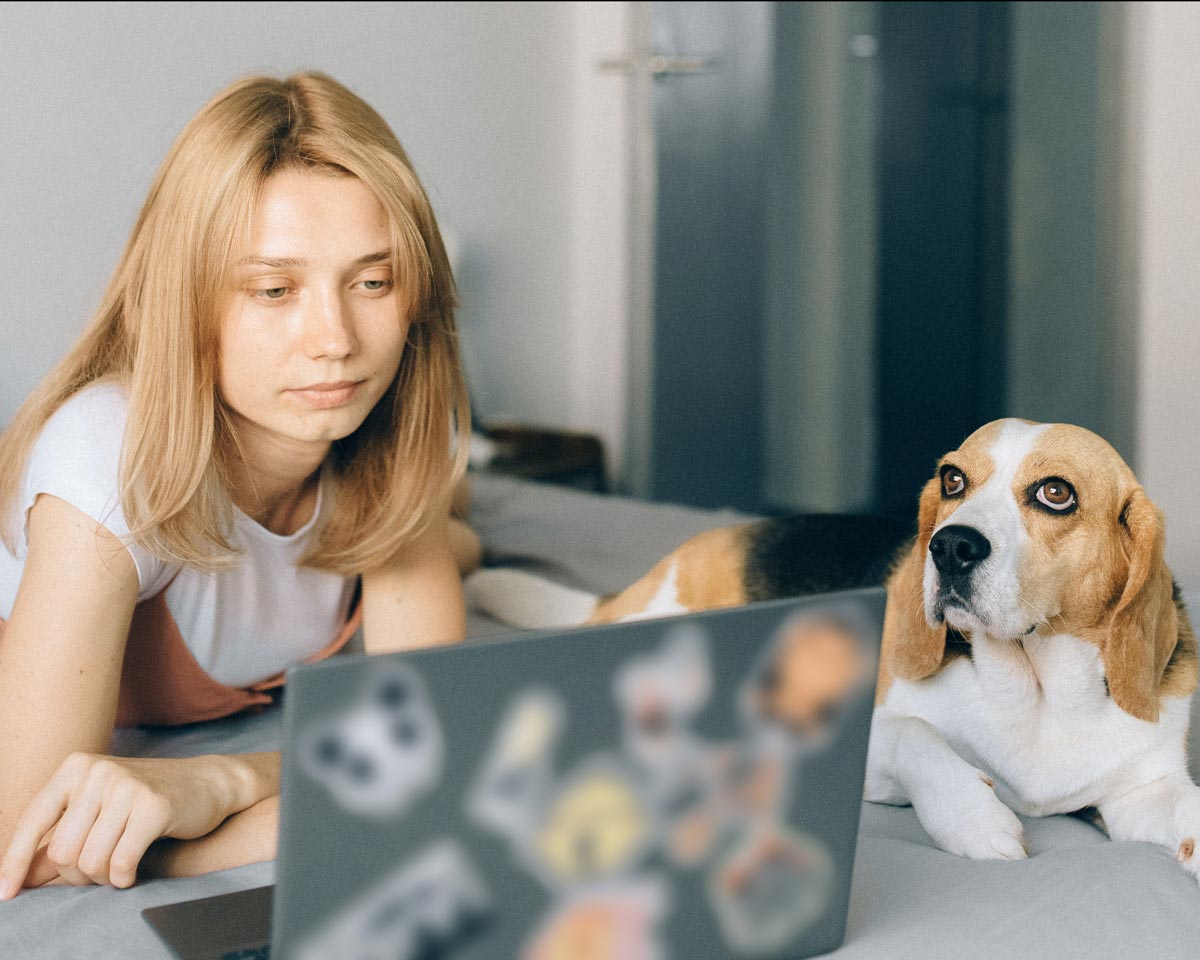Since the outbreak of COVID -19 , We have seen many crazy changes to life and to our daily routines and as a result, I can bet you may have had to stay at home more than usual spending more time with your family and of course the family Dog.
And Guess what? the Family Dog is LOVING IT!!! They are getting used to having you around more and more all the time, extra walks, lots of snuggles, even more treats and all that extra attention is make those Tails Wag!! Now while this can be a good thing as it is an opportunity for pet owners to bond with their furry friends, it also poses a problem now that most have or will be returning to work! …. yep gone are the tail wags!!
Your Dog will feel the absence more than ever, and this might lead to a condition known as separation anxiety.
So if your dog is displaying any of these symptoms or behaviours he could be suffering from separation anxiety.
- Pacing
- Self-mutilation
- damaging furniture and inappropriate chewing
- Excessive Drooling, Barking or Howling
- Attempts to escape home, Yard or Kennel
- Urinating/defecation in the home
- Digging/Scratching carpet, windows and doors
- Extreme excitement with owners return
What dogs are most at risk?
- Senior Dogs: Like humans, older dogs find it hard to tolerate changes as they age, and this might trigger separation anxiety.
- Newly Adopted Dogs: Dogs that recently moved from a shelter to a home or dogs that were previously traumatized but now in a new home might find your departure to be stressful.
- Pets with Existing Behaviour Issues; Dogs with phobias about elements or events inside or outside the house may also have anxiety when their human source of confidence leaves.
- Puppies: They are likely to become stressed because they have not been socialized yet, so they do not know how to cope without their owners.
Scary right? Don’t Stress Read On…
There are several different tips and tricks and ways to deal with anxiety in your dog:
- Introduce some Independence training, Teach your dog that he can’t get your attention whenever he is in the same room with you. Start by creating a signal for a human timeout during which you won’t make eye contact with them or interact with them at all. You can go outside for a few minutes and come back. Gradually increase the time until your dog becomes comfortable with being alone for one hour hen several hours at a time.
- Downplay your Departure: Many dog owners love to give their pet goodbyes that involve petting and excessive kisses (we all love to do that they are just so cuddly how can you not!!! ) You may need to change the tactic as those actions may be cues for them to go into stress mode. So try to make little to no fuss about leaving or coming back.
- Use Distractions: An effective way to help your dog overcome dog anxiety is to give him things to do. Toys and games that encourage independent activities can keep their minds preoccupied while you’re gone.(toy link) Consider giving your pooch a few puzzle toys (toy link) and choose the ones that take the longest to finish. The more fun and challenging the toys are, the less likely that they would notice your absence.
- Create A Safe Zone: Your dog needs a safe zone that they can retreat to when they feel anxious, and the crate is a great idea for that purpose. Train your dog to associate the crate with comfort and pleasure by putting wonderful things like chew toys (link) and food releasing puzzle toys in it.
- Reduce External Noise: Some dogs get stressed by events or noise from the outside, an example being fireworks or loud construction noises, so close your curtains to block out those distractions. You could also leave the Tv or radio on for background noise. some dogs enjoy a security sweater or calming bed these are also great additions to offer that ever so anxious loving pup.
- Get them Socialized and Tired: if you have to opportunity to take them to training classes, dog agility or even a doggy daycare or a dog walker, getting them tired out, no promises but maybe then they won’t look at your new couch like a giant chew toy.
So to wrap it all up, Dog anxiety can be handled, don’t wait for it to be a big issue and remember your dog’s anxiety is really like ours can be, be patient and kind persistent and caring and you will find they will start to settle into their surroundings more comfortably again.
-Shannon VanDeByl


